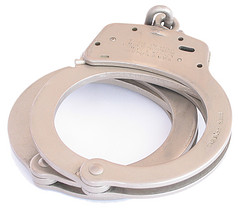FBI Nabs Woman Who Claimed To Be Aunt Of Newtown Victim In Order To Collect Funeral Donations
It’s a sad reality of life that where there is tragedy, there will always be those who take advantage of such tragedies and try to make a buck off it. Almost as soon as news hit of the Sandy Hook shootings just two weeks ago, officials had to warn the public of scammers raking in cash with various schemes. Just yesterday, the FBI arrested the woman in New York City who was allegedly posing as the aunt of Noah Pozner, a child killed at Newtown Elementary to collect money for a funeral fund.
The family was able to get control of the domain name and shut down the scam. The woman has now been charged charged with making false statements to federal agents, and is facing a maximum five years in prison and a $250,000 fine.
Officials say the 37-year-old woman used her Facebook account and texted people as well to get donations for the fund of one of the 6-year-old victims, the first of the victims to be buried after the Dec. 14 massacre, reports USA Today.
According to the complaint, the woman set up a PayPal account to funnel the donations into, but then denied to the FBI agents who were onto her that she had accepted money using social media and said she’d refunded any money she’d received.
“It is unconscionable to think that the families of the victims in Newtown, and a sympathetic community looking to provide them some sort of financial support and comfort, have become the targets of criminals,” said FBI Special Agent in Charge Kimberly Mertz. “Today’s arrest is a stern message that the FBI will investigate and bring to justice those who perpetrate Internet fund raising scams, especially those scams that exploit the most vulnerable in their time of shared sorrow.”
The scam apparently started within an hour of the shooting, as the woman wrote on Facebook: “All we know is 18 kids have been killed…still no word on my nephew.”
A few days later she tugged at more heartstrings, writing: “We’ve set up a funeral fund for my brother …”
The boys (real) uncle told NBC News, which tracked the woman down and confronted her over the page: “I’m disgusted by it. I think it’s disgusting behavior.”
The FBI asks that information about Newtown-related fundraising schemes be reported to its Connecticut office at 203-777-6311.
One more time, for good measure, check out our tips for avoiding charity scams:
Don’t be shy about asking who wants your money. If you’re solicited for a donation, ask if the caller is a paid fundraiser, who they work for, and the percentage of your donation that will go to the charity and to the fundraiser. If you don’t get a clear answer — or if you don’t like the answer you get — consider donating to a different organization.
Call the charity. Find out if the organization is aware of the solicitation and has authorized the use of its name. If not, you may be dealing with a scam artist.
Ask for written information about the charity. This includes its full name, address, and telephone number.
Contact the office that regulates charitable organizations and charitable solicitations in your state, The National Association of State Charity Officials has contact information for regulators in each state available on its website.
Your state office also can verify how much of your donation goes to the charity, and how much goes to fundraising and management expenses.
You also can check out charities with the Better Business Bureau’s Wise Giving Alliance and GuideStar.
Trust your gut and check your records.
Callers may try to trick you by thanking you for a pledge you didn’t make. If you don’t remember making the donation or don’t have a record of your pledge, resist the pressure to give.
Be wary of charities that spring up overnight.
This is especially true after natural disasters. They may make a compelling case for your money, but as a practical matter, they probably don’t have the infrastructure to get your donation to the affected area or people.
Watch out for similar sounding names.
Some phony charities use names that closely resemble those of respected, legitimate organizations. If you notice a small difference from the name of the charity you intend to deal with, call the organization you know to check it out.
Be wary of charities eager to collect cash.
If they say they are sending a courier or offering overnight delivery service to collect your donation immediately, you have to wonder whether the charity is legitimate.
Know the difference between “tax exempt” and “tax deductible.”
Tax exempt means the organization doesn’t have to pay taxes. Tax deductible means you can deduct your contribution on your federal income tax return.
Do not send or give cash donations.
Cash can be lost or stolen. For security and tax record purposes, it’s best to pay by credit card. If you’re thinking about giving online, look for indicators that the site is secure, like a lock icon on the browser’s status bar or a URL that begins “https:” (the “s” stands for “secure”)
N.Y. woman arrested over Newtown massacre scam [USA Today]
Want more consumer news? Visit our parent organization, Consumer Reports, for the latest on scams, recalls, and other consumer issues.


